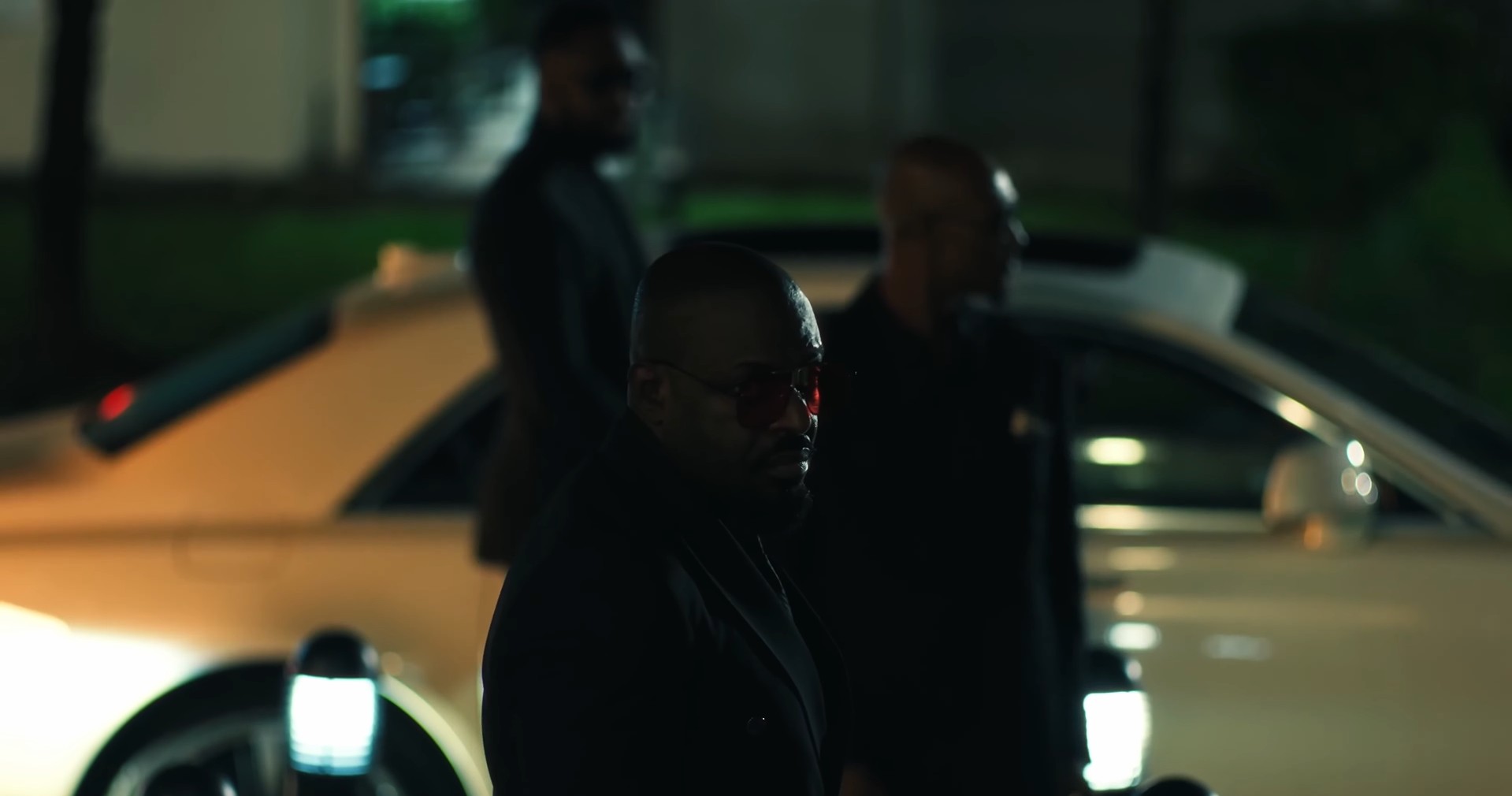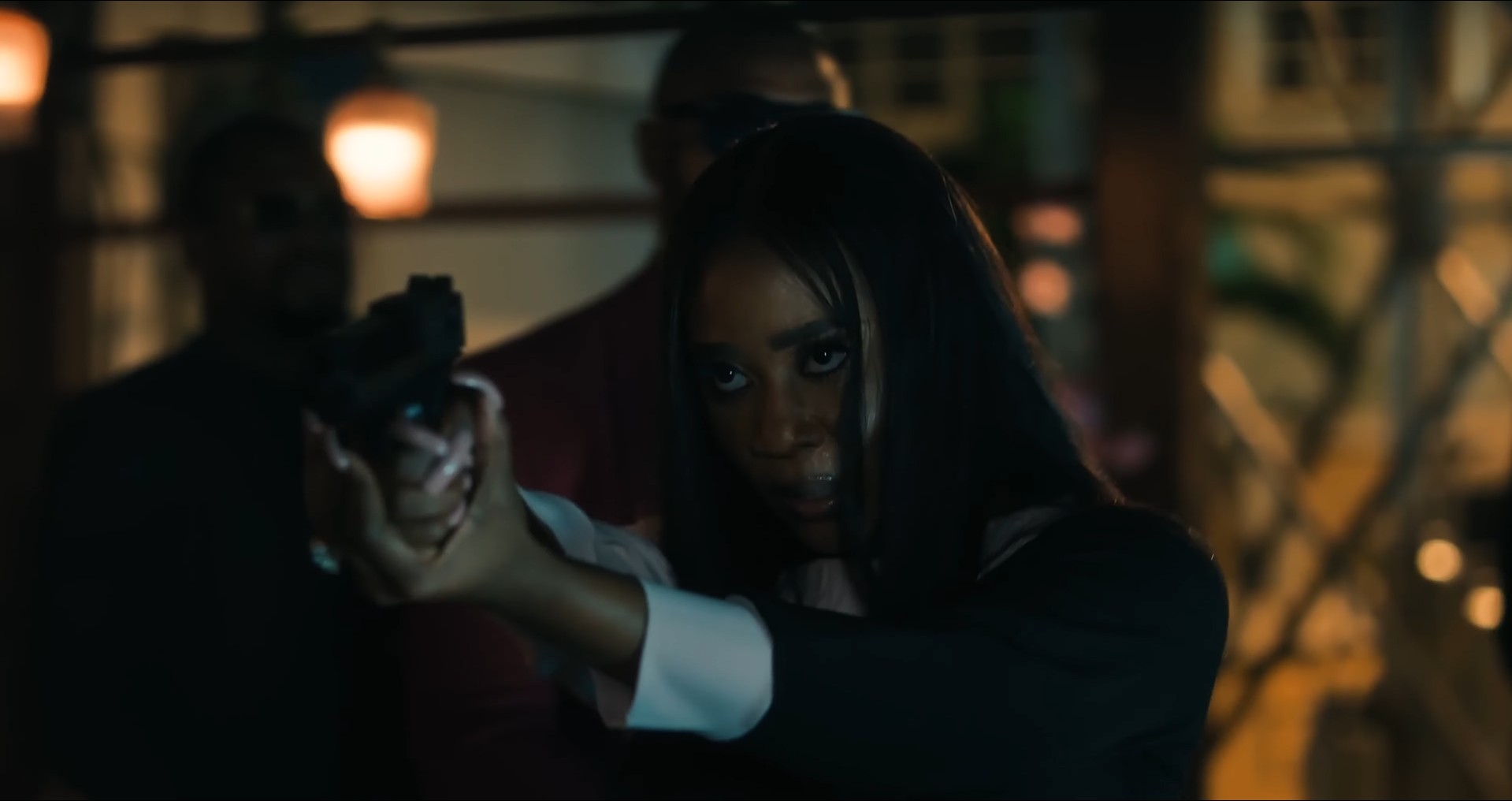Sin, desperate as it is to be seen as a proper high-stakes thriller, is a low-stakes crime-thriller wannabe that is incapable of justifying its premise or even its existence.
By Vivian Nneka Nwajiaku
When the opening sequence of a Nollywood crime thriller features a relevance-seeking, statistics-quoting voiceover with lacklustre delivery; a random collection of traffickers—white and black alike—moving around money, guns and drugs across two continents; nude women brandished in a particularly crass tone; and Charles Okocha wearing a ridiculously painted web tattoo on one eye with a comical character title card introducing his character as Spida, it might be immediately obvious that the film is a bad pastiche.
But this is Sin (2025), the ambitious two-part project that Jim Iyke reportedly spent $2.5Million to make after he managed to convince Amazon Prime to invest despite the streaming giant’s earlier departure from the African filmmaking scene. For this film, two directors were recruited: Yemi “Filmboy” Morafa (The Wait (2021), The Party (2025)) and the late Oladimeji Ajibola (Passport (2022); Shanty Town (2023)). Four writers, Emil Garuba, Brenda Ogbuka-Garuba, Michael Garuba, and Iyke, share screenwriting credits. All the stops were pulled out. Even a Nollywood cynic would be curious to see the result.
Starring in the lead is Toni Tones, most popular for her turn as the young version of Eniola Salami, the fierce lead character of Kemi Adetiba’s revered King of Boys, the franchise that triggered New Nollywood’s love for crime thrillers. Here, Tones stars as Ms. Tosin “Sin” Ajala, formerly Mrs. Shina, a socialite whose life is turned upside down when her husband, Jide Shina (Yemi Blaq), gets arrested for running a drug trafficking empire.

In the first part, Sin: First Blood, Tosin finds herself forcefully recruited by Jide’s handler, Mr. Black, played by none other than Iyke himself, to replace her husband as the frontperson for an international crime syndicate. And in the second, Sin: Blackout, Tosin’s attempts to break free from Mr. Black’s control result in unforeseen events that put her family and practically every character in the film at the receiving end of Mr. Black’s fury.
It is a good premise on paper, until one questions why an international drug trafficking syndicate would bypass its many discreet operatives actively vying for the job, and entrust such a crucial operation to an unwilling, incapable socialite already exposed to law enforcement after her husband’s arrest for the exact same crime she is being recruited to commit.
That is not to say that there is no world where such an idea could work. A satirical comedy, a parody, or even a serious crime thriller in the hands of a great filmmaker could pull it off. Like any good fiction, such a film would need to abide by some internal logic that sells the stakes.
But Sin, desperate as it is to be seen as a proper high-stakes thriller, is a low-stakes crime-thriller wannabe that is incapable of justifying its premise or even its existence. An amalgamation of crime thriller tropes so riddled with implausibilities and nonexistent logic that even the few explanations the film offers are just as farcical as what they attempt to explain.
If Sin had interesting characters, at least, there would be some succour. But interesting is an alien concept here. Characters are not established, let alone developed. From irrelevant characters introduced after they have already been killed off, to characters introduced with fanfare and then unceremoniously dispatched offscreen, we practically watch the writers come up with the characters and plot points in real time and then forget about them.

The lead is not spared, either. We are supposed to accept that Tosin is a socialite, although she has no social circle—even after her successful rebrand—beyond Toke Makinwa playing herself in an obvious brand commercial. And even as life gets progressively more difficult for Tosin, each new plot point has less impact on her than the previous one.
A good example is the scene from which the first part of the film derives its title, First Blood. It is a momentous plot point—at least as momentous as anything can be in this faux thriller—that supposedly highlights the moral dilemma that Tosin is confronted with, and it should affect the direction of the narrative. But it eventually has no effect, landing as just another thing that occurs for the purpose of ticking crime genre boxes.
Yet, Sin, especially First Blood, wants very badly to be taken seriously. In fact, it is determined to be perceived as social commentary. So, it makes socio-political statements. Literally. Sin has several voiceover statements and multiple monologues on the drug trafficking menace, none of which is necessary or penned with subtlety or finesse.
The tactless commentary is hectic on its own. But even worse are the weird cartel references, lines that are lifted from foreign films—the famous prison line from Watchmen (2009) makes a notable appearance—but still manage to be cringey here, and the unbearable dialogue. There may be four screenwriters, but Iyke’s 2000s Nollywood schtick is all over the dialogue, with lines that are imagined to be witty but are actually so incredibly painful that one just has to laugh at their absurdity.
At least, when a film is made with a considerably high budget in Nollywood, there are good things to say about other aspects of the production, even when the writing fails. Sin comes right after Kemi Adetiba’s To Kill a Monkey (2025), a crowd-pleasing crime thriller series that also has a writing and world building problem. But To Kill a Monkey has excellent performances and a few other merits with respect to the production. Sin does not. With its decent cast (this film has Bimbo Manuel, Chidi Mokeme, Kelechi Udegbe, Gideon Okeke, and Chimezie Imo), the performances could have been the saving grace, but Sin’s best actors stagger between middling and bad performances.

Plus, the production is embarrassingly poor. Camera choices are amateurish, as if someone was excited to attempt certain shots for the first time without caring what such shots would achieve. Bad lighting is masqueraded as cinematic vision. Costumes mistake flashiness for luxury.
The sound leaves much to be desired. And it’s not even nitpicky to be shocked that nobody could be bothered to edit the title card when the title of the first part changed from “Sin: First Kill” to “Sin: First Blood”.
Mainstream Nollywood has delivered too many bad projects this year, but Sin is definitely a top contender for the worst one. There is nothing about this project that makes it worth two parts. There is nothing about it that justifies shooting in four countries. Sin is an irredeemable attempt at a crime thriller. Ultimately, it feels less like a film and more like an excuse to go continent-hopping. May affliction not rise a third time.
Rating: 1/5
*Sin: First Blood and Sin: Blackout are streaming on Prime Video.
Vivian Nneka Nwajiaku is a writer, film critic, TV lover, and occasional storyteller writing from Lagos. She has a master’s degree in law but spends most of her time watching, reading about and discussing films and TV shows. She’s particularly concerned about what art has to say about society’s relationship with women. Connect with her on X @Nneka_Viv



